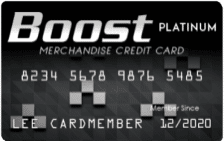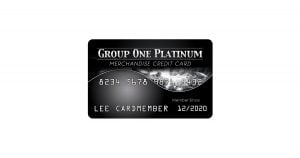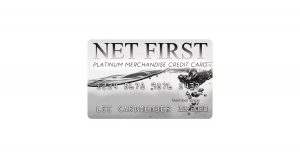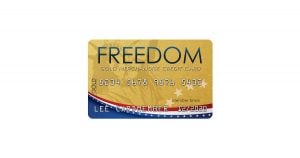Filter Options
×-
-
Unselect all
-
Unselect all
-
Unselect all

Showing 95 Cards
Sort By Column Name:
Target RedCard™ Mastercard

Target RedCard™ Mastercard
- 28.15% variable based on the Prime Rate Regular Purchase APR
- 31.15% variable based on the Prime Rate Cash Advance APR
At a Glance
The Target RedCard™ is a family of credit, debit, and prepaid cards from Target and TD Bank, with the most interesting option the no annual fee Target RedCard™ Mastercard. The card offers 5% off on Target purchases, plus 2% cash back on gas and dining, and 1% back on everything else.
- Best Benefits
- Rates & Fees
- Why Should You Apply?
- Unlimited 5% savings at Target and Target.com
- 2% cash back on dining and gas station purchases
- 1% back on all other purchases
- Additional 30-day return policy on select items
- 2-day delivery
- No annual fee
- Regular Purchase APR: 28.15% variable based on the Prime Rate
- Cash Advance APR: 31.15% variable based on the Prime Rate
- Cash Advance Transaction Fee: Either $10 or 3% of the amount of each cash advance, whichever is greater
- Late Payment Penalty Fee: Up to $41
- Return Payment Penalty Fee: Up to $30
- You primarily shop at Target for your groceries or household items
- You want basic rewards for gas and dining purchases
- You have a good or excellent credit score
- You want a card with no annual fee
Sony Visa®
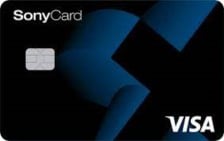
Sony Visa®
- 19.24%, 25.24%, or 27.99% variable based on creditworthiness and the Prime Rate Regular Purchase APR
- 26.99% variable based on the Prime Rate Balance Transfer APR
- 28.99% variable based on the Prime Rate Cash Advance APR
At a Glance
The Sony® Visa® Credit Card is a retail rewards card from Comenity Bank. This no annual fee retail card provides plenty of points for Sony aficionados but comes up short when redeeming rewards.
- Best Benefits
- Rates & Fees
- Why Should You Apply?
- No annual fee
- Earn 5X points on entertainment and Sony purchases with Sony or eligible 3rd-party retailers
- Earn 2X points on dining and rideshares
- Earn 1 point per $1 spent on all other purchases
- Regular Purchase APR: 19.24%, 25.24%, or 27.99% variable based on creditworthiness and the Prime Rate
- Balance Transfer APR: 26.99% variable based on the Prime Rate
- Balance Transfer Transaction Fee: Either $10 or % of the amount of each transfer, whichever is greater
- Cash Advance APR: 28.99% variable based on the Prime Rate
- Cash Advance Transaction Fee: Either $10 or 5% of the amount of each cash advance, whichever is greater
- Foreign Transaction Fee: Up to 3% of the transaction amount in U.S. dollars
- Late Payment Penalty Fee: Up to $41
- Return Payment Penalty Fee: Up to $41
- You love everything Sony - from movies, to electronics, to the PlayStation gaming ecosystem
- You prefer to redeem rewards to a rewards catalog
- You want a stylish card that shows your love for your favorite game or series
- You don’t want to pay an annual fee
Amazon Store Credit Card

Amazon Store Credit Card
- 29.99% variable based on the Prime Rate Regular Purchase APR
At a Glance
The Amazon Store Credit Card is a no annual fee store card from Synchrony. The card offers the option of 5% cash back or 0% APR financing on Amazon purchases, and a lot more.
- Best Benefits
- Rates & Fees
- Why Should You Apply?
- No annual fee
- Earn 5% cash back at Amazon.com and Amazon physical stores
- Special promotional financing for 6, 12, or 24 months
- Regular Purchase APR: 29.99% variable based on the Prime Rate
- Late Payment Penalty Fee: Up to $40
- You shop with Amazon frequently
- You have an active Amazon Prime membership
- You want to earn 5% back on purchases
- You don't want to pay an annual fee
MLS Forward Credit Card

MLS Forward Credit Card
- 29.99% variable based on the Prime Rate Regular Purchase APR
- 29.99% variable based on the Prime Rate Cash Advance APR
At a Glance
The MLS Forward Credit Card powered by Avant earns MLS soccer fans everywhere up to 5X points on MLS purchases, 15% savings at the MLS shop, and more for no annual fee.
- Best Benefits
- Rates & Fees
- Why Should You Apply?
- No annual fee or foreign transaction fees
- Earn 5,000 points after spending $1,000 in purchases in the first three months
- Earn 5X points on MLSStore,com purchases
- Earn 3X points on gas, plus 2X points on dining and groceries purchases
- Earn 1X points on all other purchases
- 15% MLS Shop discount
- Regular Purchase APR: 29.99% variable based on the Prime Rate
- Cash Advance APR: 29.99% variable based on the Prime Rate
- Cash Advance Transaction Fee: Either $10 or 3% of the amount of each cash advance, whichever is greater
- Late Payment Penalty Fee: Up to $39
- You want to support your favorite MLS team
- You have average credit but don't want to pay an annual fee
- You frequently spend on gas, dining, and similar purchase categories
Universal Rewards Plus Visa Signature®

Universal Rewards Plus Visa Signature®
- 21.99% to 28.99% variable based on creditworthiness and the Prime Rate Regular Purchase APR
- 21.99% to 28.99% variable based on creditworthiness and the Prime Rate Balance Transfer APR
- 28.99% variable based on the Prime Rate Cash Advance APR
- 0% for 6 months from account opening date Intro Purchase APR
At a Glance
The Universal Rewards Plus Visa Signature® Card offers up to 4% cash back on Universal purchases, plus provides 10% savings on eligible purchases within the park. Cardholders also enjoy special 0% APR financing for 6 months and more for a $99 annual fee.
- Best Benefits
- Rates & Fees
- Why Should You Apply?
- Earn 4% back in rewards on qualifying Universal purchases
- 2% back in rewards on Travel, Gas and Dining purchases
- Earn one single day theme park general admission ticket each account anniversary
- $99 annual fee
- Intro Purchase APR: 0% for 6 months from account opening date
- Regular Purchase APR: 21.99% to 28.99% variable based on creditworthiness and the Prime Rate
- Balance Transfer APR: 21.99% to 28.99% variable based on creditworthiness and the Prime Rate
- Balance Transfer Transaction Fee: Either $10 or 5% of the amount of each transfer, whichever is greater
- Cash Advance APR: 28.99% variable based on the Prime Rate
- Cash Advance Transaction Fee: Either $15 or 5% of the amount of each cash advance, whichever is greater
- Annual Fee: $99
- Foreign Transaction Fee: 3% of the transaction amount in U.S. dollars
- Late Payment Penalty Fee: Up to $40
- Return Payment Penalty Fee: Up to $35
- You love theme parks but prefer Universal Studios
- You plan to keep the card year-after-year to take advantage of the single-entry reward
- You want basic cash back rewards on everyday purchases
You've viewed 5 of 95 credit cards
What is a Retail Credit Card?
When you hear the term “retail credit card,” you probably think of a store card – a credit card you can use to shop at one particular brand. And you would be right – that is the very definition of a store card. But, there are several different “store” or “retail credit card” types.
What is a Retail Credit Card?
So, what do we mean when we say “retail card”? Essentially, a retail credit card is an open-loop credit card with co-branding for a retail brand. They’re generally offered through a partnership between the store and a credit card issuer and earn the most rewards on in-store and online purchases at that same merchant. Cardholders can then typically redeem their rewards for store discounts, cash back rewards, statement credits, and complimentary items.
Here are four examples of retail cards:
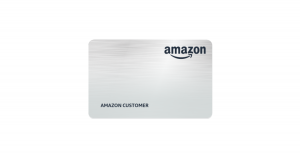 |
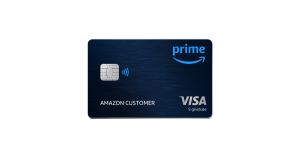 |
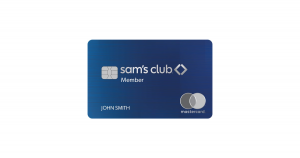 |
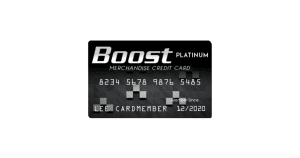 |
| Amazon Store Card | Prime Visa | Sam's Club® Mastercard® | BOOST Platinum Card |
| Private Label Card | Co-branded Card | Co-branded Card | Private Label Card |
| Use only for Amazon.com store purchases | Use where Visa is accepted | Use where Mastercard is accepted | Use at the Horizon Outlet online shopping portal |
What Types of Brands Offer Credit Cards?
Various stores offer these cards to increase revenue and customer loyalty. This includes, but is not limited to:
| Groceries | Home improvement stores | Department stores | Wholesale clubs |
| Auto dealerships | Coffee shops / cafes | Pet stores | Online retailers |
Common Features of Retail Cards
Retail credit cards share some common features, including:
| Payment network | What distinguishes a retail card from a store card is the payment network on which it operates. Retail cards use a global payment network, like American Express, Visa, or Mastercard (Discover used to issue a few co-branded cards but no longer does). Retail open-loop credit cards can be used not only at the issuing retailer but also at a wide range of other merchants that accept that credit card network. This provides you with more flexibility in using the card for various purchases and expenses. | ||
| Introductory offers | Many retail cards come with sign-up bonuses different from store cards. These open-loop cards typically have welcome points or discount bonuses after meeting minimum spending thresholds in a set period. These cards may also provide an additional bonus on your first purchase with the card’s brand – a feature also seen on store cards. Finally, some retail cards may feature introductory 0% APR or promotional APR financing on purchases through a set period, such as 12 months. | ||
| Special financing | Some retail open-loop credit cards provide special financing options, allowing you to make large purchases and pay them off over time with low or 0% interest rates for a specified period. This special APR is different from an introductory offer, as it is available throughout your card membership. | ||
| Rewards | Many retail open-loop credit cards offer rewards programs that allow you to earn points, cash back, or other incentives for your purchases. These rewards can be redeemed for a variety of options, such as merchandise, travel, gift cards, or statement credits. | ||
| Consumer protections | Retail open-loop credit cards usually come with consumer protections provided by the credit card network, such as purchase protection, extended warranty coverage, and fraud liability protection. Depending on the card type, you might have access to additional benefits like travel insurance, rental car coverage, airport lounge access, and concierge services. | ||
| Discounts | It’s common for a retail employee to offer you their store’s credit card at checkout. It’s also not unusual for said employee to pitch a signup incentive in exchange for opening an account, such as an extra discount on what you’re about to purchase. If you practice your timing wisely, you could earn that bonus discount in conjunction with other sales the store is promoting, thereby saving big bucks on something you were already planning to buy. | ||
| Sales access | As a store cardholder, you may receive access to exclusive members-only sales that either include items not otherwise available to the public or deeper discounts than what the average consumer would find. Alternatively, you may be able to shop for new collections before they reach the masses. | ||
| Annual fees | While many retail cards feature no annual fee, some cards might charge a fee in exchange for having an account. These cards are typically proprietary cards from issuers like U.S. Bank, but they tend to offer elevated rewards that justify the annual fee. | ||
Other commonly seen features of open-loop retail credit cards include customer service lines to assist in finding items, completing orders, or receiving other assistance; credit-building tools such as credit score monitoring and regular reporting to the major credit bureaus (Experian, TransUnion, and Equifax); and access to exclusive perks through the payment network (Visa, Mastercard, or American Express).
Benefits of Retail Credit Cards
Perhaps the best benefit of a retail credit card is its wider acceptance as opposed to a closed-loop store card. Open-loop retail credit cards can be used at the retailer and any merchant accepting the associated payment network. They are often also accepted worldwide, making them versatile for domestic and international purchases.
Ample Rewards
Rewards are likely the main reason you are looking for a retail card, so make sure the card hits all the right notes in the categories you care about. The most common reward categories for retail cards are select purchases with the card’s store brand. Typically, these rewards are the highest, ranging between 2X to 5X points per $1 spent.
Retail cards may also provide bonus points in non-branded transactions, such as gas, groceries, travel, and other “everyday rewards” categories. Always take the time to carefully gauge how often you would use a particular card for these extra purchases, as this can help better inform you if a card is right for you or not.
Related Article: The Ultimate Guide to Bilt Rent Day
Promotional and Intro APR
The other main reason why people choose a retail credit card is promotional financing. Both store cards and retail cards may provide promotional financing on eligible purchases with a brand or family of brands.
The CareCredit® Rewards™ Mastercard™ is a great example of a retail card with promotional financing. Cardholders can finance medical procedures and expenses of $200+ at participating CareCredit providers, including vets, eye doctors, podiatrists, and other specialists.
CareCredit offers two types of promotional financing plans: deferred interest repayment or a reduced APR with fixed monthly payments. The deferred interest repayment plan is available in 6, 8, 12, and—newly created— 24-month payment periods for amounts of $200 or more. To cover larger medical costs, cardholders also have the option of 24, 36, 48, and even 60-month repayment periods. The minimum purchase amount needed to qualify for the 1, 2, or 3-year repayment term begins at $1,000 while the 5-year repayment options require expenses of at least $2,500.
But retail credit cards may also provide 0% intro APR on purchases and balance transfers. The Barnes & Noble Mastercard®, issued by Barclays Bank, offers 0% for 15 months on transfers made within 45 days from the account’s opening, for example.
No Annual Fee
Many retail and store credit cards have no annual fee. Always try to aim for a credit card with no annual fee unless you:
- Have bad credit and need a secured card
- Have fair/bad credit and want to avoid a secured card
- Plan to really use the card, and there is a premium version with greater rewards.
No annual fee credit cards are also preferable in the long term, as they are low maintenance for cardholders.
Building Credit
One of the most commonly asked questions regarding store and retail credit cards is whether or not you can build your credit score using a closed-loop store card. The answer is: Yes!
Because most store cards are issued by major banks – such as Synchrony, Comenity, Citi, Wells Fargo, and others – they report your activity to the major credit reporting agencies (Experian, Equifax, and TransUnion). This means that you can build a positive credit history with smart financial decisions and responsible credit use. Here are a few more tips for building credit with store cards:
| ① Check and review your credit reports | Ⓐ Check your credit reports from all three of the nationwide consumer reporting agencies: Equifax, Experian, and TransUnion. |
| Ⓑ Check for negative credit information, like potential fraud or ID theft, accounts in collection, or unpaid balances. | |
| ② Pay your bills on time | Ⓐ Automatic payments are a great way to avoid accidentally missing a payment. |
| Ⓑ Splitting monthly payments into two smaller payments can help stretch budgets while ensuring you pay on time. | |
| ③ Keep credit use low | Ⓐ Credit utilization accounts for roughly 30% of your credit score, so aim to keep credit use as low as possible. |
| Ⓑ Consider a balance transfer credit card if your credit use is creeping up and you want to consolidate that debt into one new account, typically at 0% Intro APR. | |
| ④ Limit new applications | Limit any new credit applications to only what is essential (i.e. if applying for a balance transfer credit card). |
| ⑤ Keep old accounts open | Don’t close any old, unused accounts. Closing accounts can lower your average credit utilization. |
Drawbacks of Retail Cards
While plenty of excellent reasons exist to consider adding a retail credit card to your wallet, some factors may not make it your best bet. These reasons include the following:
| Potential Drawbacks of Retail Credit Cards: | |||
|---|---|---|---|
| Higher APR | Retail credit cards typically have higher interest rates compared to traditional credit cards. If you carry a balance from month to month, the interest charges can quickly accumulate, offsetting any rewards or discounts you may have earned. | ||
| Lower Credit Limits | Retail credit cards often come with lower credit limits compared to other credit cards. This can restrict your purchasing power, especially if you plan to make significant purchases or have a high credit utilization ratio. | ||
| Potential Credit Impact | If you miss payments or carry high balances on your retail credit card, it can negatively impact your credit score. Late payments and high credit utilization can result in penalties, increased interest rates, and damage to your credit history. | ||
Are There Business Retail Cards?
Absolutely. In fact, many small-to-medium-sized businesses (SMBs) can save significant money and also earn rewards with co-branded retail cards. These business credit cards offer benefits and rewards tailored to business needs, particularly software expenses, travel, advertising, and more.
Why Should Companies Choose a Retail Card?
Cards like the Costco Anywhere Visa® Business Card by Citi or the Amazon Business American Express Card can help companies that spend heavily on bulk items or repeated orders. Others, like the GM Business Card™ from Marcus by Goldman Sachs, are ideal if your company has a fleet that requires maintenance – or you plan on using your rewards to purchase new vehicles for your business.
Business retail cards might make sense for your brand if any of the following apply:
- You want specialized rewards tailored to your monthly spending habits.
- You use specialized software and account management tools needed to streamline your bookkeeping.
- You plan on issuing multiple employee cards and need free additional cards.
- You don’t want a personal guarantee for your business credit.
Business store cards can be valuable tools for managing business expenses and earning rewards on essential purchases. Business owners should carefully review the terms, rewards, and fees associated with these cards to choose one that aligns with their business needs and financial goals.
Things to Consider Before Applying for a Retail Card
You should always carefully analyze each card you are considering applying for to ensure it suits your needs. Here are some of the critical things to look out for before you apply for your next retail credit card:
Credit Needed
Store cards are more accessible than other types of credit cards. As such, applicants don’t need to have stellar credit histories to be approved. Co-branded store cards do require a more robust credit profile than private label cards, but even so, they remain a good point of entry for individuals who are trying to build their financial reputation. Regardless of type, retail store cards carry high interest rates, so it’s essential not to be trigger-happy when making purchases and to completely pay off balances as often as possible.
Versatility
The versatility of a credit card is essential for ensuring it’s a card you’ll use every day. Consider things like the payment network: is the card accepted by the merchants you use the most? American Express enjoys 99% coverage by merchants in the United States, but the brand’s acceptance is lacking in many overseas countries. Visa or Mastercard, on the other hand, are accepted in over 200 countries each, making them more reliable options for international use.
Versatility extends beyond where you can use your card, however. You also need to pay close attention to external purchases made with the card and if they earn bonus points or cash back rewards. Does the card offer rewards on the categories you spend heavily on, such as gas, groceries, streaming, or something else? Do all purchases earn at least 1X points per $1 or 1% cash back?
Finally, is the card compatible with technology, like mobile wallets or EMV chip and PIN? Adding your card to a mobile wallet, like Apple Pay, Google Pay, or others, can help add another layer of security when making online and in-store purchases.
Annual Fee
As noted, many retail cards charge no annual fee. A yearly fee for card membership can be an instant “no” for some, but that doesn’t have to be the case. Take the U.S. Bank Shopper Cash Rewards™ Visa Signature®. That card features a $95 annual fee, but it’s waived for the first year as an incentive to new applicants. While that fee seems steep each year thereafter, the card’s rewards are well worth the squeeze.
For instance, cardholders earn up to 6% cash back at a huge number of retailers:
| Ace Hardware | Home Depot | QVC |
| Amazon.com | IKEA | Restoration Hardware |
| Anthropologie | Kohl’s | Target |
| Apple | Lowe’s | Walmart |
| Bed, Bath, & Beyond | Lululemon | Wayfair.com |
| Best Buy | Macy’s | Williams Sonoma |
| Chewy.com | Menards | Pottery Barn |
| Crate & Barrel | Nordstrom | Disney |
Just based on those rewards, the $95 annual fee is justified. That’s because 6% back is far beyond what most cards of this type would earn – and that doesn’t even include purchases made outside of those brands. Cardholders also earn 3% cash back on their first $1,500 spent in eligible purchases on their choice of one everyday category (wholesale clubs, gas and EV charging stations, or bills and home utilities), as well as 1.5% back on everything else.
Here’s how those rewards compare with a store card:
| Shopper Cash Rewards | Store Card | |
|---|---|---|
| Amazon | 6% | 5% |
| Apple | 6% | 5% |
| Walmart | 6% |
2% in stores 5% online |
| Target | 6% | 5% |
As you can see, there is plenty of value to be found – and this is a great explanation of why you shouldn’t instantly walk away from a card just because it has an annual fee. Instead, check first if it works within your spending patterns and lifestyle.
APR
Retail credit cards tend to have higher interest rates than other rewards credit cards (like travel rewards or cash back). The APR for retail cards can range dramatically, with some cards from big banks like Chase, Comenity, or Synchrony offering applicants with excellent credit exceptionally competitive APRs. Still, most retail cards feature significantly higher APRs thanks to retail cards’ lower credit limits and credit score requirements.
Fees
Most credit cards charge fees of some variety, with common fees including annual fees, foreign transaction fees (if applicable), late payment fees, and over-the-credit-limit fees. Retail credit cards also charge fees, which may differ from other types of credit cards you might consider.
Beyond the already discussed annual fees, here are the major fees associated with retail and store credit cards:
- Late Payment Fees: Missing a payment due date can result in late payment fees, typically around $25 to $40. Always pay on time to avoid these charges.
- Penalty APR: Retail cards may impose a penalty APR if you miss multiple payments. This rate can be significantly higher than the standard APR and cost you in the long run – running for 12 months or longer sometimes – especially if you still have a large balance to pay off.
- Foreign Transaction Fees: If you use your retail card internationally, you might face foreign transaction fees – usually around 3% of each transaction amount.
Other Fees with Store Cards
There are also non-credit-related expenses to consider. You might be required to make a minimum purchase to access certain rewards or discounts, for example. This is often the case with promotional financing, especially 0% APR offers.
You’ll also need to consider the shipping costs (and returns). Some credit cards provide free shipping as a cardmember perk, while other programs may only offer free shipping on orders over a certain amount (for example, free shipping on orders of $35+) or with an elite tier. These are not direct costs you would normally associate with a credit card, but they are still critical things to consider before applying – otherwise, you might end up with the wrong product for your unique needs.
Benefits and Protections
Thanks to payment networks, open-loop credit cards feature greater safety features than store cards. Visa, Mastercard, and American Express all offer unique security protections and cardholder benefits. These features can not only help save you money but can also provide assistance in travel emergencies and offer comprehensive customer support worldwide.
American Express only offers one set of features for Amex co-branded credit cards. These protections include the following:
| Extended Warranty | Return Protection | Car Rental Loss & Damage Insurance | Amex Concierge |
| Purchase Protection | Zero Fraud Liability | Trip Delay Insurance | Amex Offers |
Visa and Mastercard each feature three distinct credit card tiers, with a basic tier (Platinum), an elevated tier (Visa Signature and World Mastercard), and an elite tier (World Elite Mastercard and Visa Infinite). As a rule of thumb, the higher the annual fee, the greater the protections and benefits, including rebates for memberships like TSA PreCheck and Priority Pass lounge access.
Here’s what you can expect from a Visa retail credit card:
| Visa Platinum | Visa Signature | Visa Infinite | |
|---|---|---|---|
| Zero Fraud Liability | ✅ | ✅ | ✅ |
| Roadside Dispatch | ✅ | ✅ | ✅ |
| Cardholder Inquiry Services | ✅ | ✅ | ✅ |
| Lost/Stolen Card Reporting | ✅ | ✅ | ✅ |
| Emergency Card Replacement | ✅ | ✅ | ✅ |
| ID Navigator from Norton | ✅ | ✅ | ✅ |
| Auto Rental Collison Damage Waiver | ✅ | ✅ | ✅ |
| Travel and Emergency Assistance Services | ❌ | ✅ | ✅ |
| Extended Warranty | ❌ | ✅ | ✅ |
| Signature Concierge | ❌ | ✅ | ❌ |
| Infinite Concierge | ❌ | ❌ | ✅ |
| Luxury Hotel Collection | ❌ | ✅ | ✅ |
| Return Protection | ❌ | ❌ | ✅ |
| Travel Accident Insurance | ❌ | ❌ | ✅ |
| Trip Cancellation/Trip Interruption Insurance | ❌ | ❌ | ✅ |
| Trip Delay Reimbursement | ❌ | ❌ | ✅ |
| Lost Luggage Reimbursement | ❌ | ❌ | ✅ |
And here are the three tiers of Mastercard:
| Mastercard | World Mastercard | World Elite Mastercard | |
|---|---|---|---|
| Zero Liability Protection | ✅ | ✅ | ✅ |
| Mastercard Global Services | ✅ | ✅ | ✅ |
| ID Theft Protection | ✅ | ✅ | ✅ |
| Mastercard Travel Services | ❌ | ✅ | ✅ |
| Mastercard Hotel Stay Guarantee | ❌ | ✅ | ✅ |
| Luxury Hotels Collection | ❌ | ✅ | ✅ |
| Airport Concierge | ❌ | ✅ | ✅ |
| Priceless Experiences | ❌ | ✅ | ✅ |
| Priceless Golf | ❌ | ✅ | ✅ |
| Priceless Cities | ❌ | ❌ | ✅ |
| ShopRunner Membership | ❌ | ✅ | ✅ |
| Lyft Credits | ❌ | ✅ | ✅ |
| DoorDash Offer | ❌ | ✅ | ✅ |
| Hello Fresh Savings | ❌ | ✅ | ✅ |
| Fandango Savings | ❌ | ❌ | ✅ |
| Cell Phone Protection | ❌ | ❌ | ✅ |
Rates and Fees
One of the most important factors to look at when evaluating a retail card should be any associated rates and fees. Ask yourself questions about things like what the APR is and if it is variable, plus if there are any penalties, such as penalty APR, late fees, or returned payment fees. Depending on what you find, ask yourself whether the fees are justified by the card’s benefits.
Other Things to Consider
Other things to consider before applying include the card’s introductory offers, promotional APR periods on select purchases, customer service, whether the card provides a streamlined mobile app for payments, and other similar questions.
Store Credit Cards
If a retail credit card is a credit card that works with a leading brand, what exactly is a store card? Isn’t “store card” just another way of saying retail card? Kind of.
While a store card can mean a retail credit card like the Target RedCard™ Mastercard, typically, the term refers to a closed-loop credit card with a store’s branding. A “closed loop” card is a credit card you can only use with one store or group of brands. These cards aren’t the same as “open loop” cards because a payment network like American Express, Visa, or Mastercard does not back them.
Like retail cards in general, open-loop and closed-loop store cards feature a wide variety of brands to select from, including the following industries and categories:
| Groceries | Home improvement stores | Department stores | Wholesale clubs |
| Auto dealerships | Coffee shops / cafes | Pet stores | Online retailers |
Common Features of Store Cards
Store cards often have features and characteristics distinguishing them from traditional open-loop credit cards. Here are some of the more common features found with store cards:
| Easier approval odds | Most store cards may be easier to qualify for, making them a potential option for individuals with limited or fair credit histories. Retailers may have more lenient approval criteria due to lesser acceptance, lower credit limits, and other considerations. | ||
| Lower credit limits | Closed-loop store cards often come with lower credit limits compared to open-loop credit cards. This is because they are primarily intended for smaller, regular purchases within the specific store. | ||
| High APR | Closed-loop store cards tend to have higher annual percentage rates (APRs) compared to open-loop credit cards. It’s important to be cautious about carrying a balance on these cards due to their potentially higher interest charges. | ||
| Promo APRs | Some store cards offer special financing options, such as zero-interest financing for a certain period, often tied to specific purchase amounts. For example, you might get six months of interest-free financing on purchases over $250. | ||
| Store exclusives | Like retail cards, many store cards feature retailer-specific perks such as exclusive benefits, such as early access to sales, free shipping, or extended return periods, as an incentive to use the store card. | ||
Also worth noting are the annual fees. The majority of store cards have no annual fee. This is a great feature and is often used to attract new applicants who frequently shop with a brand. The lack of an annual fee is preferable, as you never want to pay for rewards unless you earn an exceptional rate – or the card provides additional benefits that justify that fee.
Other common features of store cards include welcome bonuses when making a first purchase with the card or after meeting qualifying spending minimums in a set period. Typically, minimum spending sign-up bonuses (such as “Earn 15,000 Bonus Points after making $500 in purchases with your new card in the first 120 days from account opening”) are only available with open loop credit cards, as it can be difficult to achieve a high spending threshold with a single brand. Instead, when purchasing immediately (read: same day), most store cards offer a special discount as you open your account.
Finally, expect store-specific discounts, bonuses, and member-exclusive holidays from a store card. From bonus rewards on your birthday to annual sales spectaculars and more, these rewards can save you hundreds on shopping, shipping, and other associated costs.
How Do Open and Closed Loop Cards Differ?
Because closed-loop cards aren’t backed by an external payment network, they lack in some regards versus traditional, open-loop retail credit cards. For example, if you have a retail credit card co-branded with Visa, you can use it at the retailer and any other merchant that accepts Visa.
Take the Belk Rewards+ Mastercard®, for example. The Mastercard version of the card earns great rewards in and outside the store, including up to 7X points per $1 for Belk purchases, plus 2X points per $1 spent on gas and grocery purchases, plus 1X on all other eligible purchases made anywhere Mastercard is accepted. The store card version, the Belk Rewards+ Credit Card, offers the same rewards as Belk but lacks the 2X and 1X bonus categories. Here’s a detailed breakdown of the reward (and other) differences with both Belk credit cards:
| Belk Store Card | Belk Mastercard | |
|---|---|---|
| Credit needed | Fair – Good | Good – Excellent |
| Pre-qualify? | Yes | Yes |
| Suitability | Use at over 300 Belk stores & Belk.com | Anywhere Mastercard is accepted worldwide |
| Belk rewards | Up to 7X per $1 on Belk purchases | Up to 7X per $1 on Belk purchases |
| Additional rewards | N/A | Earn 2X per $1 on gas and groceries, and 1X on all other purchases |
But store and retail cards differ in other ways, too. Most store cards have higher interest rates and fees than general-purpose credit cards. These cards are known for their high APRs, especially if you carry a balance month to month. Higher interest rates are typically due to lower credit score requirements. When the issuer is left with a higher risk of defaulting on their balance, they offer steeper interest rates to ensure responsible credit users don’t behave irresponsibly.
What are the Benefits of a Store Card?
Many of the benefits of store cards have already been covered, but they need repeating. First and foremost, store cards provide you a line of credit that you can use to make purchases at your favorite stores. These cards offer many of the same brand-specific rewards you might want from a retail credit card but with easier credit odds and lower chance of an annual fee. If you frequently shop at a particular retailer or its affiliated brands, a closed-loop store card can provide convenience and potentially significant savings on your purchases.
As just noted, store cards have lower credit requirements than open-loop, traditional credit cards. Store credit cards are often marketed to individuals with varying levels of credit history, including those who might be new to credit or have lower credit scores. Issuers may set lower credit limits to manage risk and ensure responsible borrowing for these customers. To mitigate potential losses from defaults, these issuing banks may offer lower initial credit limits until a cardholder’s payment behavior and good creditworthiness are established.
Finally, some closed-loop store cards provide promotional financing options, such as interest-free financing for a specific period on large purchases. This can benefit customers making significant purchases at the retailer, allowing them to spread payments over time without accruing interest.
Are There Any Drawbacks to Store and Closed-Loop Cards?
While the great features of store cards can’t be denied, there are important things to consider first before applying for one. This includes addressing any drawbacks users might experience with these closed-loop cards, including the following:
- Limited usability: The most significant drawback of closed-loop store credit cards is their restricted usability. They can only be used for purchases at the specific retailer or its affiliated brands. Attempting to use them elsewhere will result in the transaction being declined.
- Higher APR: As mentioned, closed-loop store cards often have higher ongoing interest rates than general-purpose credit cards. If you carry a balance, the interest charges can offset the benefits of any rewards or discounts.
- Limited versatility of rewards: While store-specific rewards are a benefit, they are limited to the retailer. This means you won’t enjoy the versatility of rewards that general-purpose credit cards offer, such as cashback on various types of purchases or travel rewards.
Perhaps the biggest risk associated with store cards is the risk of overspending. Because closed-loop store cards often come with store-specific rewards, there can be a temptation to overspend at that retailer to maximize the rewards. This can lead to financial strain if not managed carefully – so be wary when using any credit product.
Are There Business Store Cards?
The short answer is yes. Business store cards can be valuable tools for managing business expenses and earning rewards on essential purchases. While there are far more retail credit cards for businesses, there are closed-loop store cards for small and medium-sized businesses (SMBs) as well. Examples of well-known business store cards include the Staples Business Credit Card and multiple examples from Home Depot, including the following:
- The Home Depot Project Loan Account
- The Home Depot Pro Xtra Credit Card (commercial revolving charge card)
- The Home Depot Commercial Account
Here are some key features of business store cards:
- Business-specific rewards: Business store cards typically offer rewards and benefits that are relevant to business expenses. This can include cash back or discounts on office supplies, equipment, and other business-related purchases.
- Expense tracking: Many business store cards provide tools and features for tracking and managing business expenses. This can simplify bookkeeping and help business owners monitor their spending closely.
- Employee cards: Business store cards often allow business owners to issue employee cards, making it convenient for employees to make business-related purchases. Business owners can also set spending limits and monitor employee spending.
- Higher credit limits: Business store cards may offer higher credit limits than personal store cards, which can be beneficial for covering larger business expenses.
- Tax deductible expenses: Business expenses made with a business store card may be tax-deductible, helping businesses save on taxes.
- Build business credit: Most business store cards report the cardholder’s payment history to business credit bureaus. This can help businesses establish and build their business credit profile. The three main business credit reporting agencies are Dun & Bradstreet, Experian, and Equifax.
Are There Secured Store Cards?
Like business cards, there are also some secured store cards. That said, secured closed-loop cards are very rare.
Perhaps the best example of a secured store card is Synchrony’s Amazon Secured Store Credit Card. The card acts like any other secured credit card might, meaning it requires a security deposit of $100+ to open. However, it stands out from the rest in that it earns 2% cash back at Amazon.com and Amazon physical stores, like Whole Foods Market locations. The card is unique because it offers Amazon shoppers with bad credit scores (or no credit history) the opportunity to earn rewards and potentially upgrade to an unsecured version of the card – the Amazon Prime Store Card.
Tips for Using Store Cards Effectively
Store cards, like any other type of credit card, require responsible use to avoid damaging your credit and personal finances. Here are a few practical tips to help you use a store credit card effectively:
| Read the terms & conditions carefully | Before applying for a store card, ensure you thoroughly review the terms and fees associated with it. Pay close attention to the annual percentage rate (APR), annual fees, and any other charges. Understanding these costs is crucial for responsible use. | ||
| Budget | Establish a strict budget for your store card purchases. Knowing how much you can afford to spend and pay off each month will help you avoid accumulating high balances and interest charges. | ||
| Avoid keeping a balance | Store cards often feature much higher APRs than traditional credit cards. To avoid paying unnecessary interest, aim to pay your balance in full each month. This method can help you take advantage of rewards without incurring interest charges. | ||
| Pay on time | Always make your store card payments on time every month. Timely payments are essential for maintaining a positive credit history and avoiding late fees. Consider setting up automatic payments to ensure you never miss a due date. | ||
| Use promo financing | Many store cards offer promotional financing on select purchases over a set amount. If your store card offers promotional financing like 0% APR, use it strategically. Ensure you can pay off the balance within the promotional period to avoid retroactive interest charges. | ||
| Monitor your credit | Store cards can have just as big an impact on your credit report as an open loop credit card. Regularly check your credit reports to ensure that your store card activity is reported accurately. This can help you spot any errors and track your credit-building progress. | ||
What to Look for In a Store Card
You know how to use a store card, but what should you look for before you apply? When applying for a store card, it’s important to carefully consider various factors to ensure that the card aligns with your financial goals and needs. This includes, but is not limited to, the following advice:
APR and Fees
As mentioned previously, a card’s interest rates and fees structure is one of the most important things to know before considering an application. Take a look at all associated fees – from late payment fees to fees for having a payment returned. Store cards typically don’t allow balance transfers, so you won’t have to worry about those fees. However, cash advances may be possible and those almost always charge a fee.
Rewards and Discounts
Rewards and in-store discounts are two of the best features of store cards, so make sure you fully understand the rewards the card earns and any other related questions, such as points expiration, terms and conditions for redeeming points or using discounts, and other considerations. Consider whether the rewards align with your shopping habits and preferences. Look for cards with valuable cash back, loyalty points, or exclusive discounts.
Special Financing
As noted, special promotional financing is a major selling point for store cards. If the card offers promotional financing, make sure you first read through the terms to understand what’s eligible and what isn’t. Check the length of the interest-free period and any minimum purchase requirements. Ensure that you can use these offers wisely. Cards may provide multiple 0% APR offers for different spending thresholds. These can save you significant money on large projects.
Credit Building
Store cards are a great way to build credit, thanks to their lower credit score requirements (on average). If you want to build or rebuild your credit, check whether the store card reports to major credit bureaus – Experian, Equifax, and TransUnion. Responsible use of the card can positively impact your credit history, so make sure to follow all the advice you find here.
Acceptability of the Card
Finally, make sure you fully understand the credit card’s acceptance. Store cards are typically accepted only at the issuing retailer and its affiliated brands. Ensure that the store or brands have various products or services you regularly purchase. Pay close attention to larger brands, as a store card for one brand can often be used for another brand within the family – such as Gap, Old Navy, Athleta, and Banana Republic.
Merchandise & Catalog Cards
Merchandise cards are a unique subset of retail credit cards designed for those with bad credit, limited credit history, or no credit history at all. These cards provide unsecured credit access to consumers looking to build credit with on-time payments and responsible credit use. This unsecured credit line only applies at a centralized online marketplace, typically an online catalog, giving merchandise cards their nickname of “catalog cards.”
Merchandise and catalog cards are enticing because they provide up to $1,000 of unsecured credit, but users should be aware of fees that can quickly overwhelm them. These cards usually require an up-front payment for activation and application costs – which can put many people off applying. Additionally, monthly account maintenance fees must be considered beforehand.
Examples of Catalog Cards
There are several catalog and merchandise card issuers, but four are the top issuers of merchandise cards:
Fingerhut
Perhaps the most famous example of a merchandise card is the popular Fingerhut account by WebBank. The Fingerhut online shopping store offers products from hundreds of leading brands, including Teleflora, Panasonic, and more. New accounts enjoy $250 worth of unsecured credit, with credit limit increases occurring sporadically – and dependent on the cardholder’s credit history with the club.
Horizon Card Services
Another popular merchandise card provider is Horizon Card Services, which issues several catalog card options, including the following:
Unlike Fingerhut, Horizon offers a $500 credit line for new cardholders. All Horizon Cards can be used at the Horizon Outlet, an online retail outlet that offers a wide spread of items such as clothing, home goods and décor, toys, books, small appliances, electronics, and more. Cardholders don’t need to pay in full but rather make a minimum monthly payment on their account.
Horizon cardholders also enjoy additional benefits, including the following services:
| Horizon Benefits | ||
|---|---|---|
| My Privacy Protection | Users receive access to unlimited privacy protection when using their card within Horizon’s online portal. | |
| My Roadside Protection | Members have access to up to three service calls or towing requests per year (up to 15 miles, and not to exceed the operator cost of $50) free of charge. | |
| Credit Hawk | Cardholders receive 24/7 credit monitoring access through Credit Hawk. | |
| My Universal RX | Members receive up to 50% off at over 55,000 pharmacies nationwide. Check www.memberbenefitaccess.com or call Member Services for selected medications and changes | |
| My Legal Assistance | Cardholders receive one free 30-minute consultation with a specialized legal professional in your area (excluding criminal defense). | |
Unique Card Services
The Unique Platinum Card, from Unique Card Services, is another popular catalog card option. Like Horizon, Unique’s online shopping portal, MyUniqueOutlet, features many products and brands, including accessories, automotive, electronics, health, beauty, jewelry, kids, and more. Like Horizon and Fingerhut, Unique offers an unsecured credit line – meaning no security deposit is required. That credit line is $1,000 – double that of Horizon and 4X that of the starting limits with Fingerhut.
But, like Horizon, there are monthly maintenance fees to be mindful of. That fee, $19.99 per month, however, does provide additional perks that can save you money and provide access to members-only discounts and Roadside Assistance.
Buy on Trust Lending
Another leading catalog card is the Buy on Trust Lending program. Buy on Trust works like Fingerhut, Horizon, and Unique Card Services but offers a name-brand difference. The Buy On Trust shopping portal lets customers shop from over 80,000 products at Best Buy. This vast list includes major brands not found on other merchandise account shopping portals, including Apple, Samsung, Insignia, Bose, LG, and more.
Buy on Trust features no credit check to apply, sizable credit limits of up to $5,000, and more. The card works like other catalog cards and offers a lease-to-buy program where account holders can buy today and pay later. This process can help you build credit but, like other cards, has associated fees.
Here’s how Buy on Trust works:
- Apply online with free pre-qualification.
- Once approved, it’s time to shop. You can select from thousands of new, brand-name electronics.
- Finish checkout and make a small initial payment using a credit or debit card.
- Pick up your order at your chosen Best Buy™. There is no other balance due at pickup.
What are the Benefits of Catalog Cards?
The biggest benefit of merchandise cards is building credit without a security deposit. Building credit takes time, and getting started without a credit card can be tough. Catalog and merchandise cards streamline this process by offering a line of credit without a deposit or a credit check. Building credit also requires good financial habits. People with excellent credit have a track record of consistent, on-time payments and responsible spending. Gaining this reputation takes time and effort. Catalog store cards, like the Freedom Gold Card or Unique Platinum Card, allow those with bad credit to prove their financial responsibility with every monthly payment.
These retail cards also provide flexible payment options that can help users offset some purchases over time, saving their finances month-to-month. For example, The Unique Platinum and Group One Platinum Cards both provide customers with 0% APR on purchases. This lack of an interest rate on purchases helps those repairing their credit by reducing their monthly payments.
Finally, catalog cards are among the easiest credit cards to get. Applying for one of these closed-loop cards can help alleviate the frustrations of multiple credit rejections, but only if used carefully. Additionally, most cards require no employment verification or credit check.
Are There Any Drawbacks to Catalog Cards?
If a merchandise card sounds too good to be true, that’s because there are some things you need to be wary of before applying. Chief among these concerns should be fees. There are annual, monthly maintenance, late, and other fees. Make sure you take the time to carefully examine all fees associated with a merchandise card before applying.
Another drawback with catalog cards is their effective reach. Like a store card, merchandise cards are closed-loop, meaning they only work for purchases with a set retailer – namely, the catalog associated with the account. This drawback can significantly impact your value should the store not contain items you desire to purchase.
Finally, there is a lack of upgradability to bigger and better cards. Because they only work with the eligible brand, there is no room for growth beyond a few credit limit increases. There is no graduation path toward a more lucrative credit card, for example, something you might find with a secured card or a secured store card like the Amazon Prime Secured Store Card from Synchrony.
Conclusion
Retail, store, and catalog credit cards are all unique retail cards that can help you build credit, earn rewards, and finance purchases. Despite that, many things must be considered before applying for your next card. When considering a new retail or store card, always ask questions about what the card will be like – including the rates and fees, rewards, and any discounts it offers. Choose a card that allows you to earn rewards for common purchases you make with said brand. Also, investigate other perks, including exclusive offers, discounts, rewards, and access to special financing. These features can save you money over time and offer exceptional value.
Check out more
Retail Credit Cards
Editorial Disclosure – The opinions expressed on BestCards.com's reviews, articles, and all other content on or relating to the website are solely those of the content’s author(s). These opinions do not reflect those of any card issuer or financial institution, and editorial content on our site has not been reviewed or approved by these entities unless noted otherwise. Further, BestCards.com lists credit card offers that are frequently updated with information believed to be accurate to the best of our team's knowledge. However, please review the information provided directly by the credit card issuer or related financial institution for full details.



